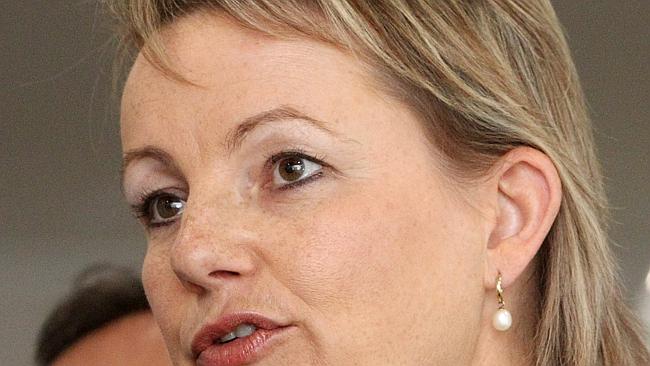
Federal Health Minister Sussan Ley. Source: News Corp Australia
OF all the unfinished business from last year’s Budget, the proposed changes to Medicare, especially those involving additional payments for visiting the local doctor, have received the most intense reaction from the public. The Government’s difficulties can be seen in what’s happened during the past two months. The planned $7 institutional co-payment for a GP visit was scrapped in early December, to be replaced by a $5 discretionary co-payment, before then health minister Peter Dutton was moved sideways to make room for a fresh and voter-friendly Minister in Sussan Ley. No sooner had these changes been digested by doctors and patients than another planned change – to slash short-visit rebates for doctors by about $20 – was dumped in a last-minute backflip.
At the press conference following the “near death” Liberal leadership showdown, Tony Abbott said reform to the Medicare system was back at square one and he wasn’t going to do anything doctors found unacceptable. Minister Ley has since been picking her way through a clearly lopsided negotiation, saying it was still important to have a “value signal” in the public subsidy of doctor visits. Ms Ley also says the current situation, which sees people without any welfare concession card account for three in four of all bulk-billed doctor visits, needs to change, suggesting that more people who can afford to pay should do so.
This has been a poorly handled and explained chapter of modern public policy that must be brought to clarity and finality. One of the tricks the Government played on the public when proposing the original co-payment plan was to handcuff it to a medical research fund which was proposed to eventually hold $20 billion. This was based on the false choice of backing an extra payment for visiting a doctor or opposing research into cures for chronic disease. The public couldn’t see the link – wondering why the money was being put into the fund if the argument was that the cost of Medicare needed to be curbed.
Yesterday, Ms Ley wouldn’t say whether this linkage would survive her current negotiations with doctors and other stakeholders in the Medicare reform debate. Despite the copayment being off the table, and a clear majority of senators opposing any erosion of access to universal bulk billing, the research fund has been operating since January 1. “The medical research future fund has money coming into it now and it’s not dependent on one particular policy or another,” said the Health Minister. This is a very good point in this debate to break the link between the research fund and any search for a co-payment or “value signal”.
Whatever policy the Government finally settles on for new Medicare arrangements, there is no longer any case for hypothecating any funds raised for medical research. Treasurer Joe Hockey has said some kind of price signal is needed and urged Ms Ley to push ahead with her search for an alternative way of changing the system. However, with Mr Abbott’s caveat that any change adopted has to have support of doctors, any new measure is going to raise much less than originally planned.
Australia has a long and proud history of breakthrough medical research which has always attracted public funding, through universities or bodies like the National Health and Medical Research Council – and this should continue to attract bipartisan support. Such research, and the often lifesaving outcomes produced, should not become mired in political arguments about what should or shouldn’t happen with Medicare funding. As the Government has argued, there is a case for more Australians making a greater contribution to the escalating cost of Medicare, whether it’s through some form of payment in doctors’ surgeries or through the tax system. We can only hope that Ms Ley, the doctors and those representing the patients can find a way to make the system less dependent on general revenue. A good way to start that hunt for an answer would be to get rid of the nonsense linkage between paying for a GP visit and vital research into disease and potential cures.
